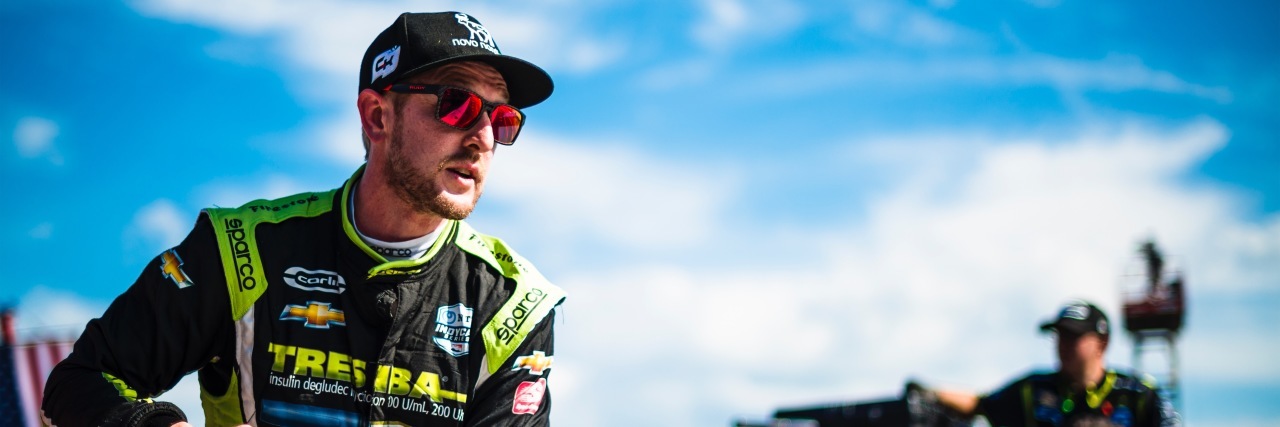Since my diagnosis, I have lived with the mindset that I can do anything. I am a huge advocate for making diabetes work for me and showing that a life can be well-lived with good control. I find so much inspiration in other type 1’s breaking down barriers and was therefore honored when given the opportunity to chat with Charlie Kimball, the first licensed driver with diabetes to win an IndyCar race. Life doesn’t slow down because of diabetes and there is no one who knows that better than Charlie, literally.
Charlie began his racing career in 2002, but his career came to a screeching halt in 2007 with his diagnosis of type 1 insulin-dependent diabetes. He initially presented midseason with a skin rash, a rare symptom that, at times, can lead to misdiagnosis. Thankfully this was not the case for Charlie who weighed in at the doctor’s office 25 pounds lighter than on the track five days before. This, in addition to his frequent thirst and urination, were telling signs of his type 1 onset.
Once diagnosed, he really didn’t know what to expect, but I could tell while speaking with Charlie that he never considered quitting. Racing was his dream. “Getting back into the cockpit was motivation in itself,” he explained. It didn’t matter that it had never been done before, Charlie was back in the cockpit three months after diagnosis with a podium finish. What an inspiration!
Charlie’s return to racing was not without hard work, dedication, and some awesome technology. “My Dexcom G6 (continuous glucose monitor) is plugged into the car’s data system. I can see it right on the steering wheel next to my speed, lap time, and oil pressure.” Most cars have special water bottles to help the racers stay hydrated. Charlie has two bottles, one with water and one with orange juice with added sugar. The two bottles come together at a 3D printed valve designed by Charlie’s father, IndyCar engineer and legend Gordon Kimball. This valve mounts on his seatbelt and allows Charlie to switch back and forth between the two bottles with just a flick of a switch.
Charlie uses multiple daily insulin injections to treat his diabetes, but he has never had to give a bolus during a race. “The adrenaline can drive my blood sugar up, but the physicality tends to drive it back down,” Charlie told me. He needs to go into the race with blood glucose levels high enough to avoid lows, but low enough to keep a clear mind and a quick reaction time and works closely with an exercise physiologist to fine tune this balance. They have found blood glucose levels between 150-175 mg/dL to be ideal during the race. His pit team could give him bolus through his fire suit if needed, but it would probably slow his time down. “My guys will change tires and fill the car with fuel in eight seconds or less,” says Charlie. “It’s nice to have that option though if I need it.”
Off the racetrack, Charlie is a passionate advocate for type 1’s and aims to raise public awareness of diabetes. As with his racing, diabetes is a team sport, and Charlie has a great team. “I rely on my team. And in this case, it’s not my race team. It’s my wife, my parents, my friends… I lean on them for strength and understanding… and I try to remember that I’m part of this community that’s full of great people.”
I found Charlie to be a great inspiration for those of us with type 1 and if you want to follow his journey, check him out on Twitter @raceswithinsulin or Instagram @charliekimball.
Photo by Jamie Sheldrick, Spacesuit Media

